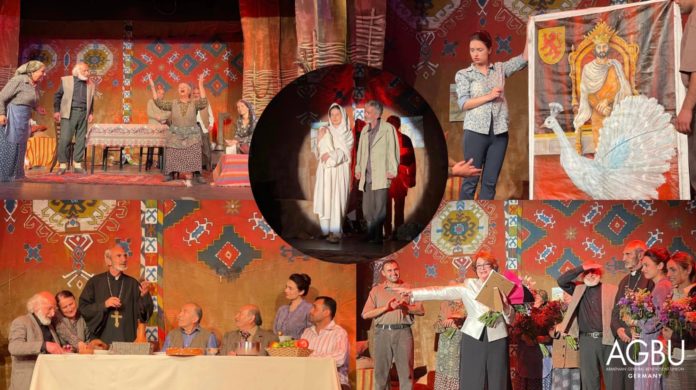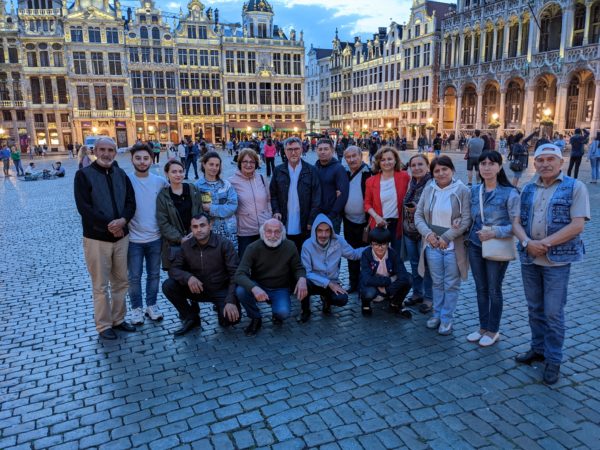STEPANAKERT — “If it be true that good wine needs no bush, ’tis true that a good play needs no epilogue,” William Shakespeare said.
The State Theatre of Artsakh didn’t need an epilogue either while touring in Europe, as the message was straightforward – Artsakh is living.
Arts have no boundaries; it is eternal — even during the worst calamities for a society. Challenges serve as a spurring force to create even when life is hanging by a thread, and theatre didn’t cease to exist and advance after the war. The Armenian communities of Europe welcomed Artsakhtsis with riotous applause and tears: for the first time in history, Artsakh Theatre toured in Europe.
June 2022 was symbolic for Artsakh theatre, as they visited five European countries to perform “Three Apples Fell from the Sky,” based on Narine Abgaryan’s novel of the same name. In a stroke of luck, the play’s director, Karine Kocharyan, arrived in Artsakh from New York. Currently, the producer of “The Voice of Armenians TVNY,” the Yerevan-born Kocharyan is an experienced actress and theatre director in Armenia and the US. She also wrote the adaptation of the novel.
“I couldn’t find inner peace after the war. I could watch from afar what was happening in post-war Artsakh, but I instead decided to come and live there, and it was the best decision I made,” said Kocharyan.
The troupe was not in its best condition in the war aftermath; some actors left, some preferred other occupations and the rest had no one to gather and guide them. They returned to the stage in the summer of 2021 to perform “The Scarlet Flower,” directed by Qajik Harutyunyan, who had long-standing experience in acting but not directing. Soon, the news arrived in the theatre and gave it a second life — a new director was coming to Artsakh!










